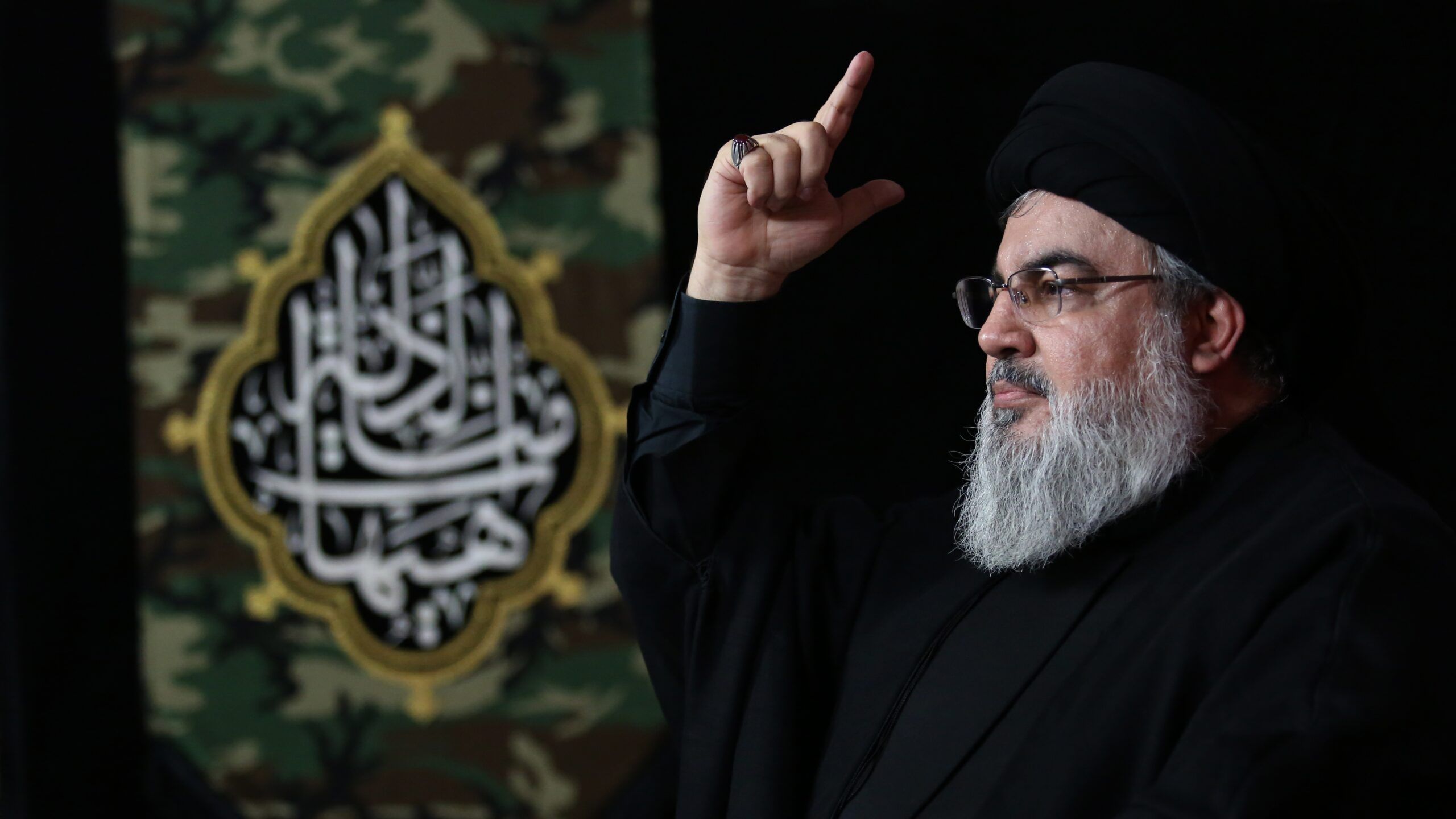“Our Elephant”: Russian Reactions to Trump’s First Steps in Office

Russia’s media landscape decisively supported the Republican candidate, Donald Trump, during the presidential campaigns against Democratic contender Kamala Harris. This alignment was rooted in shared narratives and policy priorities, particularly on issues such as the war in Ukraine, which align with Russian geopolitical aspirations. WNM already analyzed the portrayal of American elections in Russian media, highlighting how propaganda outlets leveraged Trump’s rhetoric to cast him as a figure sympathetic to Russian interests.
Russian state and non-state media frequently amplified Trump’s criticisms of U.S. involvement in Ukraine. His statements opposing prolonged support for Ukraine resonated with Moscow’s desire to weaken Western opposition to its actions in the region. The outcome of the election and Trump’s subsequent inauguration were portrayed in Russia as a major geopolitical victory. Media outlets suggested that his presidency would usher in a new era of cooperation between the two nations and bolster Russia’s global influence.
Russian media extensively covered Trump’s initial actions as president, emphasizing several key areas of his agenda that resonated with Russian audiences. His restrictive immigration policies were highlighted as a strong defense of national sovereignty, a value frequently promoted in Russian domestic rhetoric. Coverage also touched on Trump’s stances on gender and inclusivity-related issues, often reflecting conservative viewpoints aligned with Russian societal norms. Predictably, Trump’s decisions regarding Ukraine were a focal point, with Russian outlets praising perceived shifts in U.S. policy that they interpreted as favorable to Moscow’s strategic goals.
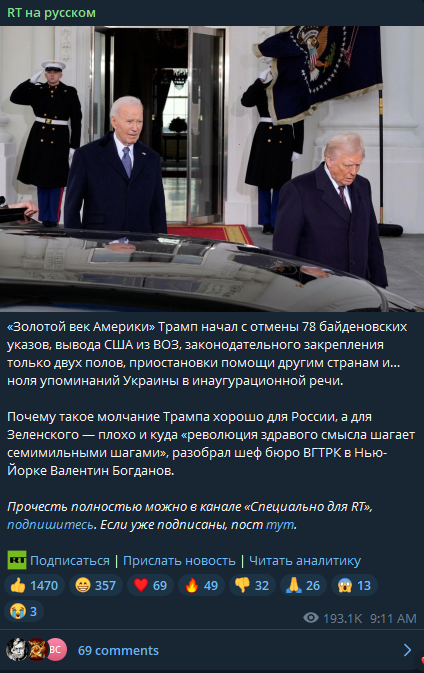
RT’s feature on the beginning of Donald Trump’s presidency refers to his term as “America’s Golden Age,” analyzing the geopolitical dynamics among the United States, Russia, and Ukraine. The article explores Trump’s ambitious goal of resolving the Ukraine conflict within his first 100 days, emphasizing his plans for direct negotiations with Russian President Vladimir Putin and the broader challenges of achieving peace in the region.
The piece underscores Trump’s desire to reinforce U.S. global dominance while critiquing the lack of skilled negotiators to navigate complex diplomatic challenges. It also highlights the continuity in U.S. foreign policy strategies, portraying America as a “global state with global interests.” Commentary on figures like General Keith Kellogg and Sergey Polunin adds a layer of skepticism regarding the potential for meaningful shifts in U.S.-Russia-Ukraine relations under Trump’s leadership.
Public sentiment, as reflected in the article’s comment sections, shows overwhelming support for Trump’s agenda. Readers express approval for his actions and affectionately refer to him as “Our elephant.” This phrase not only plays on the Republican Party’s symbol but also resonates with a popular Russian meme praising strength and masculinity.

However, public sentiment shifted sharply when discussions turned to the war in Ukraine. The typically pro-war and pro-government audience of Telegram channels associated with RT and other war-focused media became increasingly critical of Trump. Many expressed disapproval of his handling of the conflict, particularly after the promise to end the war within 24 hours. This reaction marked a noticeable departure from the initial support for Trump’s broader agenda, revealing a deep skepticism among this audience regarding the feasibility of his claims and his approach to such a complex geopolitical issue.
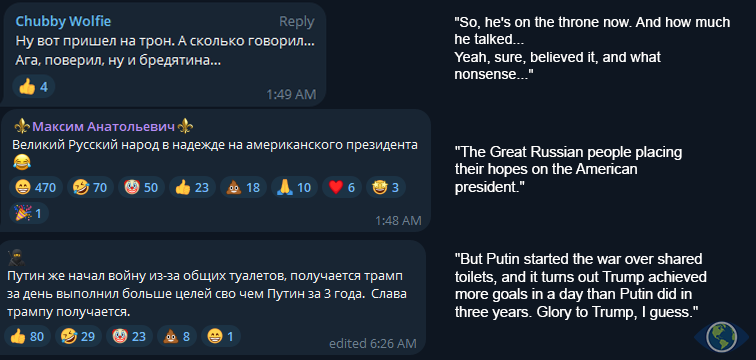
This unexpected twist emerged as many Trump supporters, who also back Russian government initiatives—most notably the “Special Military Operation” in Ukraine—expressed dissatisfaction with his inability to deliver on his promise to end the conflict within one or two days. Despite their alignment with both Trump’s election and the Kremlin’s agendas, frustration grew over what they perceived as unrealistic claims and an underestimation of the complexities involved in resolving the war.

These sentiments were further intensified by a post from President Trump on Truth Social regarding the war in Ukraine. The post, translated into Russian and widely circulated in Russian media, amplified the critical discourse. Many readers interpreted the statement as inconsistent with his earlier promises, fueling dissatisfaction among supporters who had initially aligned with both his rhetoric and the Kremlin’s broader narratives.
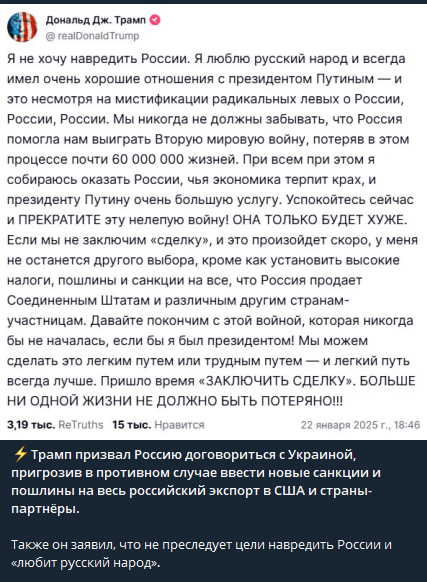
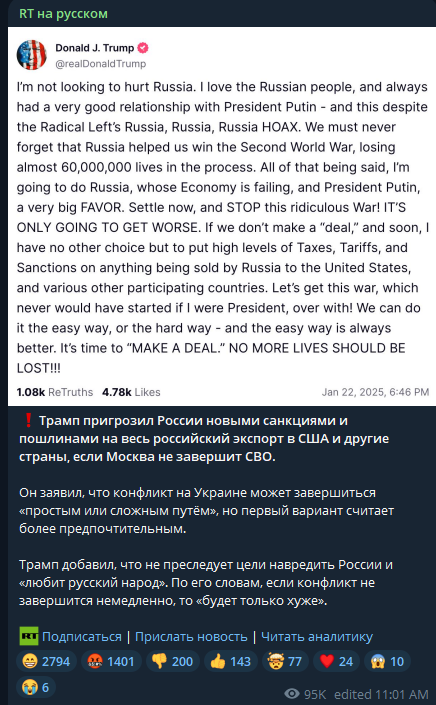
The public reaction to Trump’s proposed solutions was overwhelmingly negative, with dissatisfaction stemming both from the specifics of his approach and the apparent lack of progress toward ending the war. This response highlights a deeper sentiment among Russians who support the conflict yet are fatigued by its prolonged nature and increasingly skeptical about its resolution from within their own country. Their initial hope for external intervention, particularly by the American president, underscores a complex dynamic within the population, revealing both frustration and a lack of confidence in domestic leadership to bring the conflict to an end.
However, most of Trump’s decisions were widely celebrated in Russian media, particularly his immigration policy changes and the cancellation of DEIA (Diversity, Equity, Inclusion, and Accessibility) initiatives, which resonated with segments of the audience as affirmations of traditional values and a strong nationalistic stance.
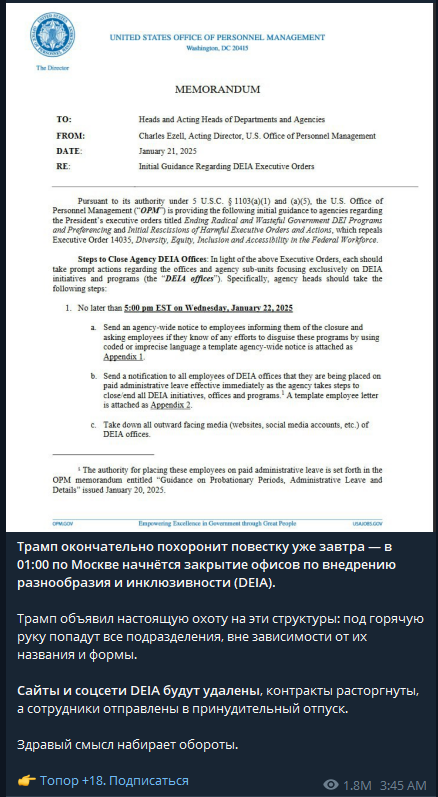
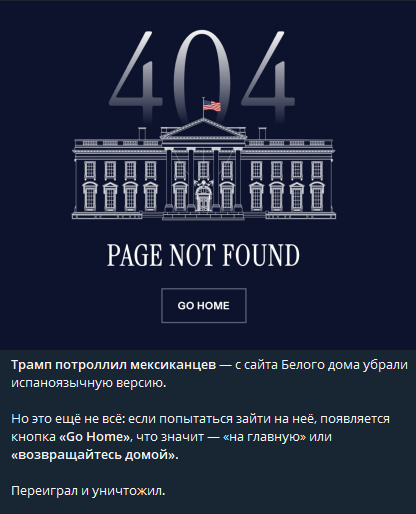
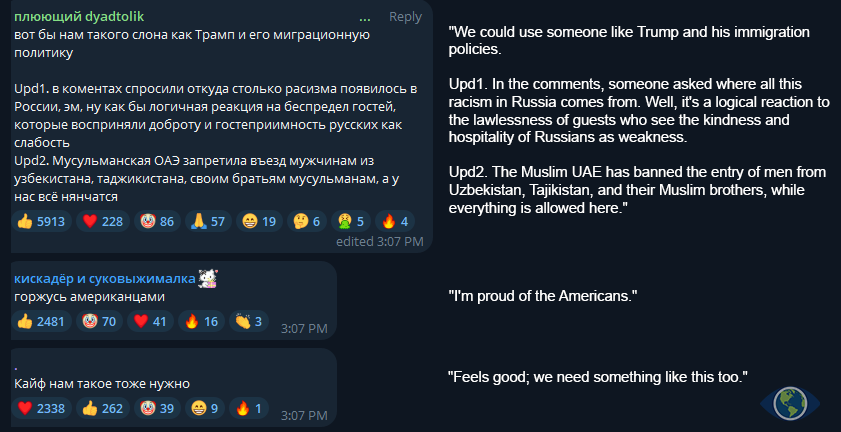
The initial actions and reactions indicate that the new president’s policies align closely with the perspectives of pro-government Russians, particularly regarding federal regulation and governance priorities. Propaganda materials highlight a favorable narrative, portraying these developments as beneficial for the Russian government. However, they also reveal the high expectations placed on Trump’s administration by Putin’s government and the discontent that arises when outcomes deviate from these expectations.
That said, it remains too early to draw definitive conclusions about the trajectory of Russia-U.S. relations in this new era. Given the complexities of armed conflicts and shifting geopolitical dynamics, unexpected developments remain possible. Stay tuned as WNM continues to monitor these international developments closely.
More from the author
